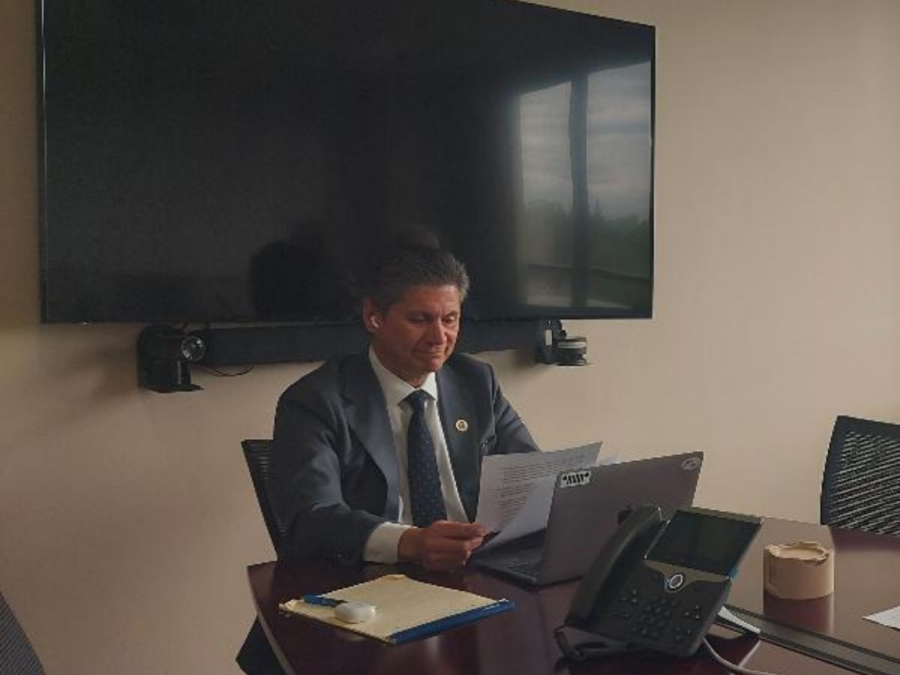CCC Chancellor holds a media teleconference for students
California Community Colleges Chancellor Eloy Oakley. Reviewing his notes before the student media teleconference on April 19.
California Community College Chancellor Eloy Oakley held the final quarterly student media teleconference of the 2021-2022 academic year on April 19.
This was the first time student journalists had been invited to attend the event in person since the beginning of the pandemic. Oakley discussed many of the legislative and policy goals his office has for the state community college system.
Oakley began with discussing current state legislation with the goal of making the state’s community colleges more accessible to low-income students.
“Assembly Bill 1746 will streamline the existing Cal Grant entitlement program and allow more than 120,000 additional community college students to qualify for Cal Grants, including a large number of Hispanic and Black and African American students in our lowest income students,” Oakley said.
Oakley also spoke about SB1141, which if signed into law would change the number of years immigrant students are required to attend school in California.
“This will help more undocumented students get the support they need so that they can transfer,” Oakley said. “So this will help further alleviate financial barriers to higher education for some of our most vulnerable students or undocumented students.”
Oakley continued by “acknowledging the mental health crisis in our system” and detailing the solutions his office as well as the board of governors are implementing to address it.
Oakley went on to announce Mental Health Action Week, which will take place from May 2-5 this year. He emphasized the free mental health webinars taking place throughout the week.
“The mental health resolution calls for prioritizing mental health, destigmatizing mental health mental illness, strengthening holistic and student supports across our system,” Oakley said. “Declaring Mental Health Action Week annually from now on, strengthening trauma informed care expertise across our system to improve our classroom climates and culture, removing structural barriers and advocating for additional resources to meet the diverse mental health needs of our students, our employees.”
The teleconference concluded with a question and answer session with the student journalists in attendance both on Zoom and in person.
Oakley answered a question regarding students’ mental health and the slow return of mental health professionals to statewide campuses.
Oakley replied by emphasizing the virtual tools his office is offering that can be accessed statewide online, as well as expressing hope that as the reopening continues more on campus services will return.
“I think, is just this transition period. There were still some faculty and staff, who for whatever reason, are hesitant to come back or whose health still doesn’t allow them to come back,” Oakley said. “Try to provide employees with a safe workspace with access to vaccination and boosting and whatever personal protective equipment that they feel that they need in order to come back on campus.”
Another such question was in regards to what changes are being undertaken to adapt instruction to the rapidly changing demands of the workforce.
“The world has changed in ways that we have to help our students adapt to and be in a position to thrive,” Oakley said. “We have been working on a number of fronts to secure resources from the federal government from state legislature to help with workforce preparation, particularly for the jobs that are being created during the pandemic that continue to be created through the new economy that’s been created.”
Oakley used the example of the current difficulty in the hiring of qualified pharmacy technicians.
“We’re asking the legislature to invest in workforce programs. We’re asking the federal government to invest in short term programs, or apprenticeship model programs,” Oakley said. “Students need us to respond. Now, not two years from now.”

